I came back to London with a cold.
It’s totally understandable, really. From Peru to the United States to England in thirty eight hours, I travelled under a haze of stale recycled air; surrounded at all times by the germs of a hundred sets of lungs, breathing in and out.
But being in the freezing temperatures of an English January for a few weeks has reminded me just how much my health suffers when I’m travelling. I exchanged the bright sun and high altitudes of Peru for the wind chill and rain-filled winter while barely giving my body any warning; and just when I got used to that weather again, I’m headed back to Peru’s humid northern beaches.
My head is more than happy about the arrangement – but my health? Not so much.
Your body goes through a myriad of difficulties when abroad. I’m talking disgusting bathrooms, looking at market and street food with just a shred of uncertainty, and saying a small prayer to the solid bowel movement gods every time you go to the toilet. Strange foods, different climates, foreign germs, questionable sanitation, and often unpalatable water all contribute to the same eventual outcome: you get sick.
After I wrote a post about the worst toilets I’d experienced around the world, I was overwhelmed with comments congratulating the fact that I’d broken a taboo – a taboo about poo, if you will – by writing about bathroom habits, in all the gross detail I felt they warranted.
In much the same vein, getting sick is an integral part of travelling, and something everyone has to cope with sooner or later. The various sicknesses travellers deal with on a regular basis are often discussed with equal glee and disgust when they’re actually abroad – so why not write about them too?
What follows is a rundown of the most common illnesses that travellers contract and how to avoid them – or how to help prevent them from occurring again. Plus a few of my more personal demons, for good measure.
Hold onto your hats, guys, because we’re in for a pretty disgusting ride…
Travel sickness
Lets start with the most basic. Travel sickness is one of those weirdly positive illnesses; despite feeling rough as anything, you know that ultimately it’s not going to have a lasting effect.
Travel sickness is often brought on by motion – think a particularly choppy boat ride, an excessively speedy bus driver, or too many twists and turns on a mountain road – and it can make a very long journey very miserable.
People who are more prone to travel or motion sickness are normally well equipped for it, packing the right pills or those seemingly magical acupuncture wristbands which are positioned on the pressure points on your wrists. But if travel sickness takes you by surprise, there are a number of ways to assuage it.
Drinking Coca Cola – particularly when it’s flat – ginger ale, and ginger beer are all very good at settling the stomach. In fact, ginger in many forms is a great help as it has anti-nausea effects; it’s most commonly found in crystals or as sweets.
Attempting to focus on the horizon – or on any stable object – can help to calm the surging in your stomach. Keep head and eye movements to a minimum, and if it’s still not dissipating then close your eyes, take deep breaths and hope for the best.
The one benefit of getting travel sick is it usually stops as soon as the movement does.
The cold, cough and sore throat combo
Ah, the unholy triumvirate. Alone, they’re averagely standard illnesses, and easy to cope with. But when one leads into another and they suddenly all get worse, it can make you feel simply horrible.
Particularly when you’re away from home.
Coughs can easily be helped along with hot water, ginger, lemon and honey. Many also swear by adding hot whisky to that mix. A sore throat offers the lovely option of gargling with hot water mixed with a spoonful of salt. Do try not to swallow though.
With a cold, at least you can call upon recently made friends to make you soup and buy you more bottles of water. If you’re in a new place and don’t know people, tell the hostel staff and they might help you out.
Food poisoning
Sadly, food poisoning is one of those sicknesses that seems to strike every traveller rather severely at some point – hence where the gleefully dramatic conversations stem from.
One of my personal favourites? Coming back to London from a month in the Middle East, suddenly realising my desperation for a bathroom at Westminster Abbey, racing to the public toilets underground and spending the next 45 minutes holding the walls of a cubicle.
It certainly wasn’t pretty.
Food poisoning can come from all number of things; undercooked meat, unpeeled fruit and vegetables, ingesting local water (and using that same water to wash food or make ice), and eating foods that have a tendency to go bad in overly hot weather.
Every suspect meat dish in India, I’m looking at you.
Obviously it depends what part of the world you’re in – I took more excessive precautions with food poisoning in India than I have in the whole of South America – but it still pays to be cautious. And if you’ve never contracted food poisoning, well… just you wait.
Food poisoning: how to avoid it
Don’t brush your teeth with tap water, don’t open your mouth in the shower and don’t eat ice. If you’re desperate for ice, ask it’s made with bottled water first, and similarly check that food hasn’t been washed in tap water.
In terms of local food from markets or cooked on the street, make sure it’s either sizzling hot or that you’ve watched the vendor cook it in front of you. So basically those prepackaged prawns on the side of the road on Colombia’s northern coast probably aren’t the best idea.
The dreaded diarrhoea
When you get food poisoning, it often manifests as diarrhoea. It’s a traveller favourite; known in different countries as Delhi Belly, Bali Belly, Montezuma’s Revenge, and a myriad of others. But no matter what you call it, diarrhoea when travelling is a universal nightmare.
Like the variation of names, depending on what country you’re in when you contract it will lead you to different local methods to help you cope.
In India, most locals will tell you to eat a diet based solely around the plainest foodstuffs of rice, yoghurt and curd. In Nepal, I was given powdered charcoal dissolved in hot water by an American volunteer, who always carried a packet of the stuff for cases just like mine.
South American resolutions to diarrhoea have simply been to carry on as normally as possible, with the hope that it eventually goes away…
Diarrhoea: how to cope with it
Globally approved coping mechanisms for diarrhoea are as follows:
- Drink lots of fluids – particularly water, and especially after regularly dissolving as many packets of Dioralyte solution as you can get your hands on (not all at once though!). There are also little measuring spoons that show you how much salt and sugar to put in a glass of water: very helpful when you’ve blitzed through your stock of Dioralyte sachets in just two days.
- Eat the plainest foods you can find (or that the person you’ve sent out to scavenge for supplies can find). You need to get a good amount of salt and sugar back into your system but simultaneously not overload your stomach, so yoghurt, bananas and crackers are always a good shout – particularly crackers for the salt content.
- Get lots of rest. Diarrhoea absolutely zaps your immune system, leaving you weak and exhausted, so book a few extra hostel days and avoid any excessive travel or activities. And if it’s still at the same severity after three days or you notice any blood, then it’s time to visit a doctor.
The yeast infection: also known as thrush
While this particular illness may not fall into the ‘common’ category, it certainly does for me. In the last six years of travelling, I’ve contracted thrush in Italy, Lithuania, India, Iceland, Ecuador, Brazil and now Bolivia. And while I’m happy that these bacteria get to feel so well travelled, ultimately I’d much prefer not to have to deal with them at all.
On the positive side, I’ve now amassed a lot of experience in the ways people around the world treat thrush. Pessaries, pills, creams, antibiotics – you name it, I’ve taken it. And I’ve also had to accept that these treatments will always be different, no matter where I go.
Thrush is a prime example of a travel-induced illness. Top contributors are changes in temperature and climate, stress (if you’ve taken a bus in South America you’ll understand), unsanitary toilets and, you’ve guessed it, actually travelling.
Because I’m prone to thrush, I assume there are a lot of other women who are too. And if you’re anything like me, you’ll have discovered that those two emergency Canasten pills you packed for a year of travel sadly aren’t quite going to cut it.
Thrush: how to cope with it
If you’re really sensitive, then washing the area with just water instead of soap definitely helps. If you can get your hands on aqueous cream (the most base type of emollient cream) that’s also a good one – although I’ve hunted for it in South America to no avail.
There’s a number of home remedies I’ve found that help too, from drinking unsweetened cranberry juice to eating a raw clove of garlic smothered in honey – which I don’t think you’d ever do unless there was a prior reason for it. It gets weirder, too: apparently the garlic works even better if it goes somewhere other than your mouth… Sew a bit of string through the clove and pull it out after twelve hours or more. (Apologies for giving you mental images you may rather not have.)
But ultimately thrush is not an infection I understand. I know I’m prone to it, but sadly that doesn’t mean I can actually cure myself.
So once in a while I have to make a trip to the doctor. Regardless of which country I happen to be in.
Going to the doctor abroad
Sometimes there’s simply no choice; whether you speak the language or not, you might have to visit a doctor when you’re travelling.
Thankfully, my visit to a Bolivian doctor after ten months in South America meant my Spanish was good enough to combat the slight fear-inducing element of being in a foreign medical clinic.
What I wasn’t prepared for was Bolivia’s bureaucratic nature when it came to getting a simple examination. One fee for a general consultation; being ferried by various nurses from a weighing scale to a blood pressure sleeve to a succession of three different rooms with different medical professionals.
It was very unnerving, and didn’t help that I only understood half of the diagnosis that was presented to me. As a result, being forced to shell out a lot of cash in a pharmacy when I didn’t know what I was buying wasn’t the best experience.
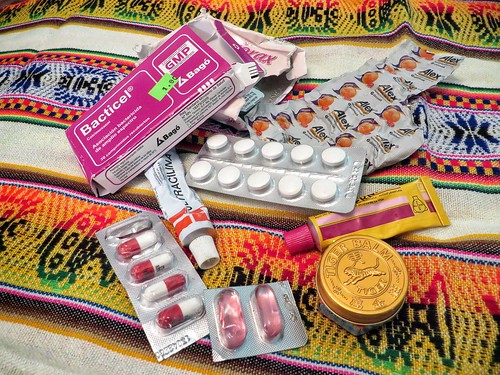
A selection of the foreign pills and potions I’ve bought throughout my travels. No idea what half of these are for anymore.
If possible, it’s sensible to have an idea of what’s wrong with you before you arrive before a doctor in another country. The alternative is knowing enough about a prior or common condition that you can simply talk to a pharmacist and get them to sell you the requisite medicine over the counter.
For instance, I’ve dealt with enough cases of a yeast infection to know the symptoms. And that means I have a substantial amount of faith in the act of self-diagnosis. I definitely wouldn’t recommend most people doing this unless they know their bodies and the symptoms they exhibit – but after that door-in-the-face from the laboratory assistant, I went straight to a nearby pharmacy and asked a question I’ve asked in many different languages in my life.
“Tienes algo por un infeccion de levadura?”
*Extra tip: learn the word for your specific recurring illness in as many languages as you can!
Bonus illness time!
Give it a few years of travel, and you’ll no doubt end up with a plethora of hilarious illness stories too.
“Did I tell you about the time I got headlice from some kids in Colombia? Or when my legs looked like they belonged to a leper in India from some crazy bug bites? Or how about the walk I did up a Bolivian glacier peak wearing no sunglasses and accidentally burnt the whites of my eyes?!”
One of the wonderful things about travelling is that you never truly know what’s going to happen. When this also applies to your health, it’s good to cover a few important bases.
A few basic health tips for travelling
- Stock up on crucial medicine before leaving home. I know that thrush meds are always on the top of my list before I travel, and it’s integral that you know what illnesses you often suffer from and provide for that potential as a result. Trust me, when you’re sick in another country there’s nothing better than the relief of knowing you have the exact medicine to combat it.
- Get travel and health insurance, and make sure you read the policy thoroughly, because you never know. Breaking your collarbone when you’re hit by a rogue horse en route to Machu Picchu is never fun, but it’d be a lot worse if you had no cover to help.
- Don’t be scared of visiting a foreign doctor or pharmacist. They do ultimately know what they’re talking about – and probably have a better idea of what to do than you. But bear in mind that even once they’ve given you a prescription, you’re ultimately not obliged to take it.
- Get to know the names of the different ingredients in the medication you’ve taken before. Usually the name of the active ingredient in a medication will be the same, regardless of what country you’re in.
- Never, ever, expect to be immune to a particular illness. Just because you haven’t got it now does not mean you’ll never contract it. And the worst thing is that these illnesses seem to have a sixth sense, and strike just when you’re feeling the most cocky…
The best thing you can do is minimise the risk as much as possible, but don’t let yourself worry about it too much at the expense of your trip. Ultimately, getting sick is an integral part of travelling.
And when you’ve recovered, it usually makes for a damn good story!

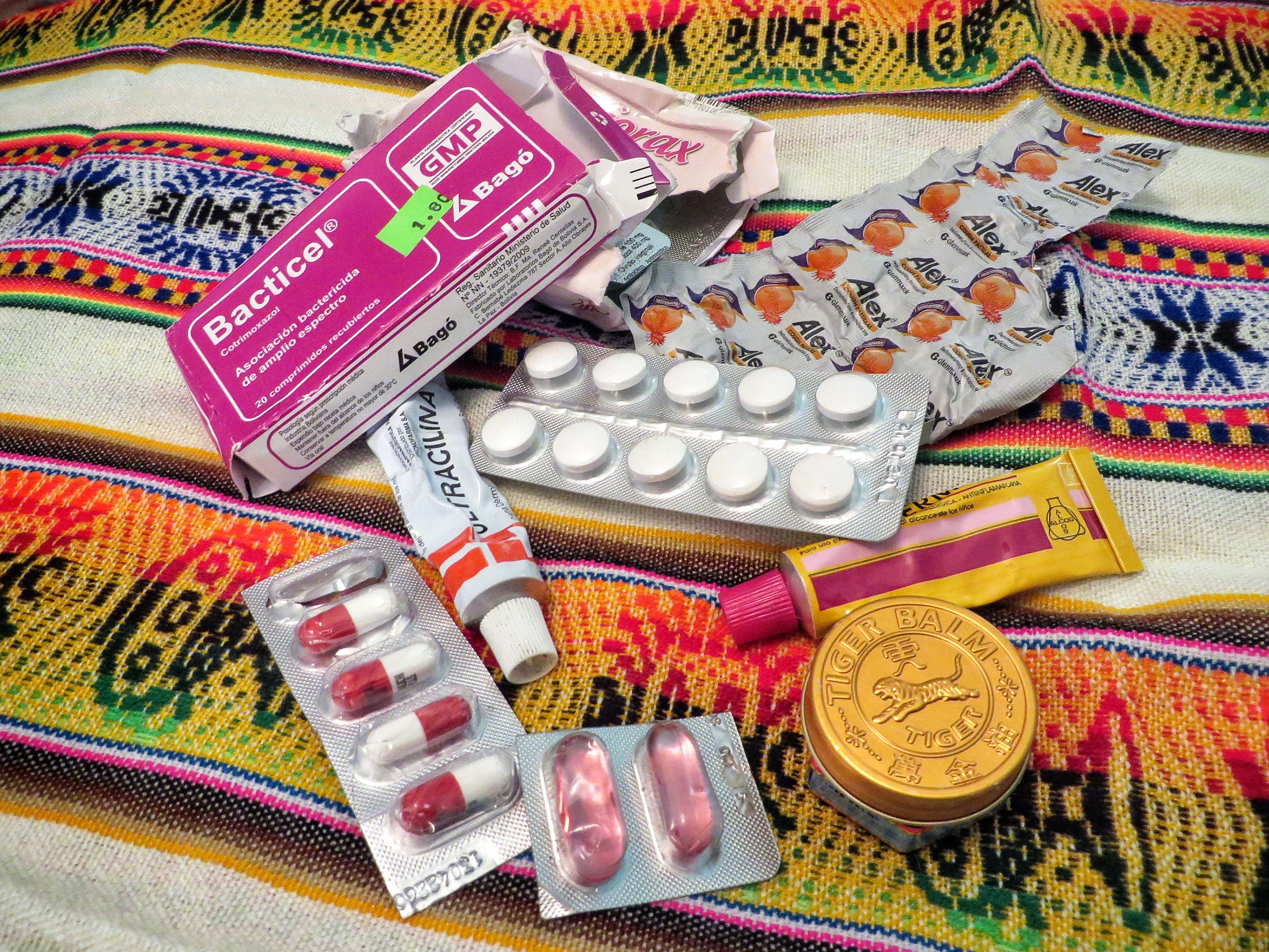
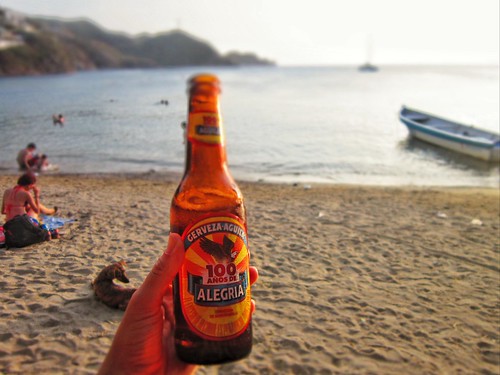



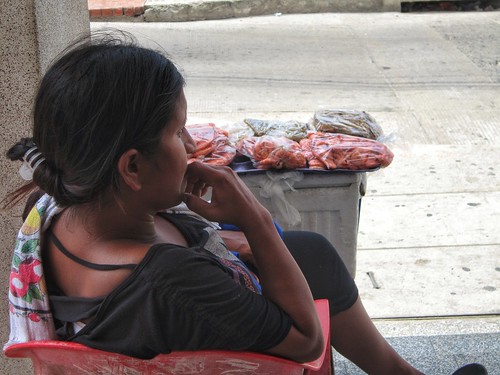
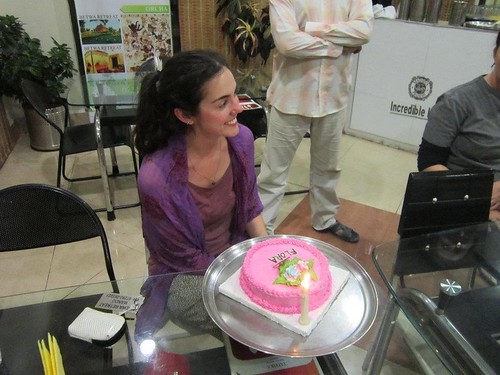
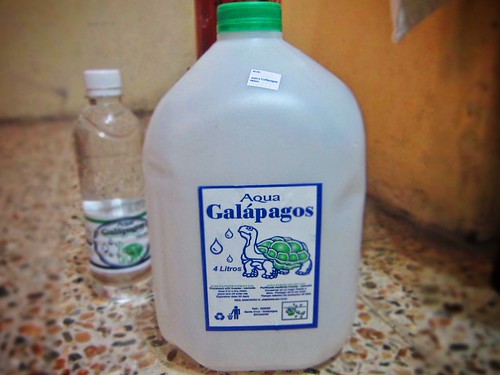
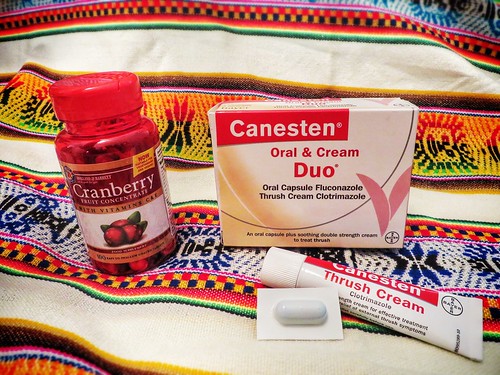
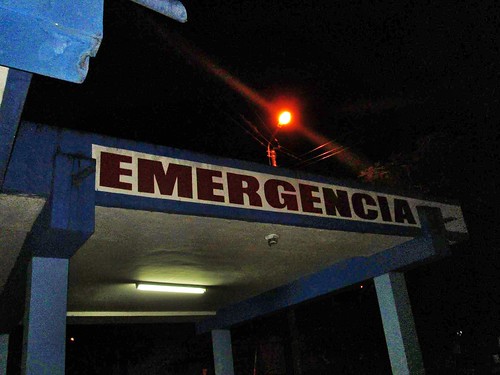

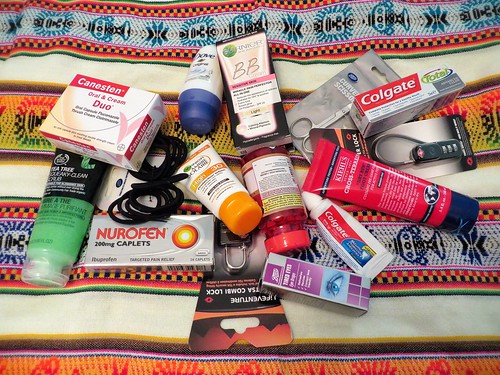

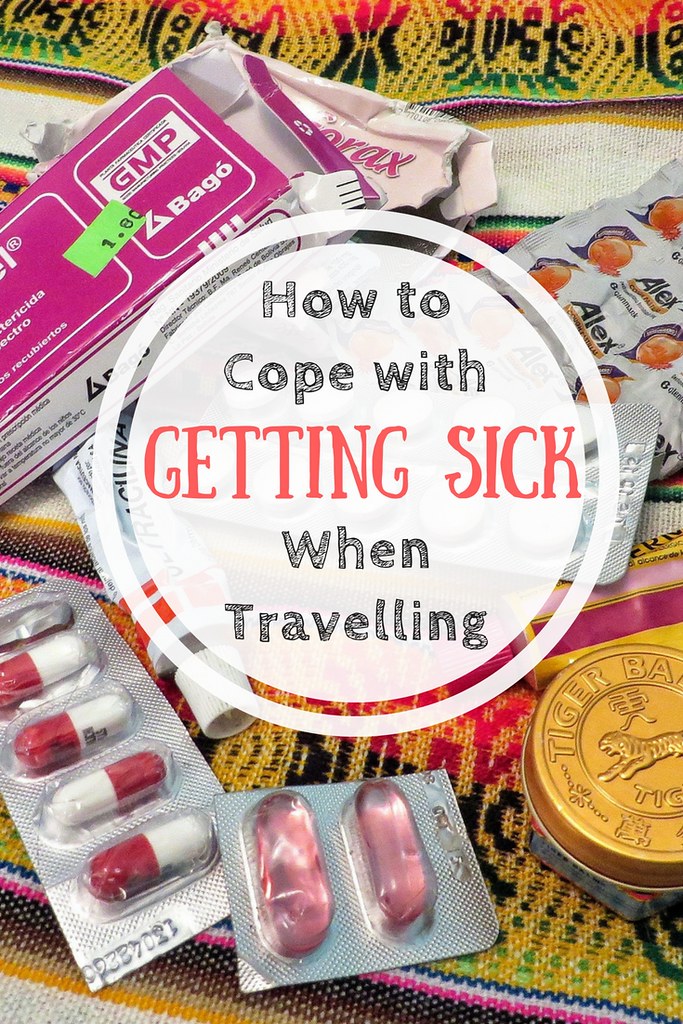
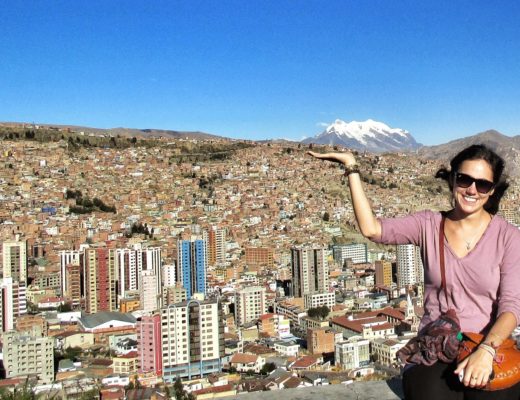
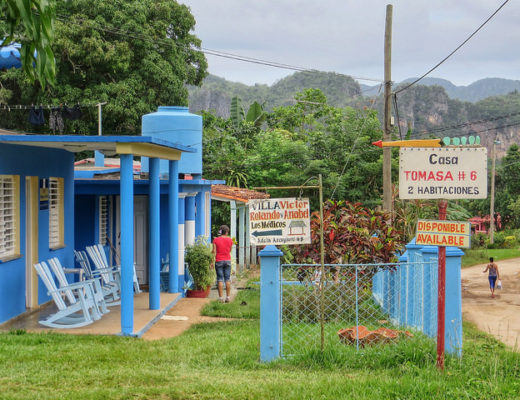
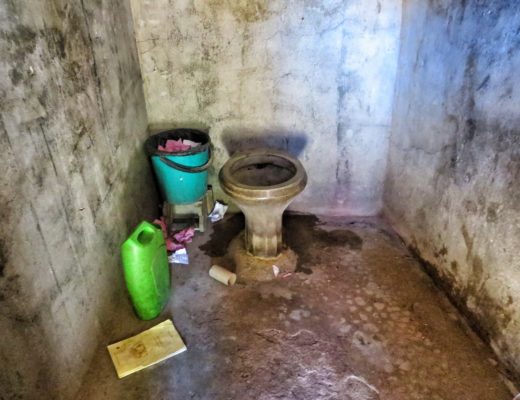
32 Comments
Gary c
February 13, 2014 at 12:17 pmGreat tips as always
Got any tips on visiting cartenega…other than the vijay jay stuff? ;-). Thx
Flora
February 22, 2014 at 4:20 pmHaha apologies for the explicit details Gary! Send me another email if you still need some Cartagena tips 🙂
Britany
February 13, 2014 at 1:16 pmOh gosh, yes. In Thailand, I was covered in pussy, painful bites all over my legs for an entire month. My homestay parents sent a friend into the mountains to bring back some crazy concoction of bark that they cooked over a fire and applied to my legs every day. It never got any better until I left, but I felt pretty special after an Indiana Jones type mission was carried out just for my bug bites.
I also got the flu in Thailand, had to be rushed to the emergency room with a fever of 105F and was given every drug imaginable and sent back home.
My piece of advice… look up the drugs you’re given in any foreign country before taking them. I sent a pharmacist friend the list of drugs they handed me in Thailand and he couldn’t believe they’d given me all of those together. Of course, there was probably some warning about when and how to take each, but with the language barrier I wouldn’t have known. Consult with a doctor back home to make sure nothing you take while abroad combines badly with anything you’re already taking!
Flora
February 22, 2014 at 4:24 pmVery good advice Britany – and that’s slightly terrifying that you were potentially taking a concoction of unsuitable drugs! Also your leg situation sounds dramatically horrible :p
Mike Sowden (@Mikeachim)
February 13, 2014 at 5:39 pmGreat, unflinching overview. Nice work.
One thing I really love Europe for is this: http://www.nhs.uk/NHSEngland/Healthcareabroad/EHIC/Pages/about-the-ehic.aspx Really reassuring to know that if something goes wrong, I do have a way of getting normal, non-travel-insurance-reliant treatment.
Regarding horrid bouts of stomach-related hideousness, a friend recently got food poisoning in Bali and self-medicated with turmeric milk: http://nutritionstripped.com/turmeric-milk/ She said it helped a lot, and when I got my own bout a week later I tried it – and she was right. Really great for settling an unbalanced stomach.
Re. drugs, the one I have to be aware of is salbutamol. I’m asthmatic, which is why it’s important I keep in some decent level of shape as I get older (being a writer doesn’t exactly help in doing this). And I always need to be aware of how much inhaler I have left. That’s my ticking clock, and since a lack of inhaler once almost killed me, I get really anal on the subject. I leave room for massive redundancy with these drugs – if I expect to only use a fifth of a cannister on my travels, I’ll take 3 or 4 cannisters, all in different bits of luggage. Some stuff you can’t mess around with.
Flora
February 22, 2014 at 4:27 pmTurmeric milk, huh? That one’s going in the memory bank.
I can’t imagine how much more preparation goes into packing when you’ve got something as specific as asthma to combat. Although it does sound like you know how over-prepared you need to be to feel comfortable! I’m not sure if I want to hear the story about your near death experience…
Rebecca
February 14, 2014 at 10:53 amGlad the thrush thing isn’t just me! I find that using a tampon that’s been dipped in (plain) yoghurt works wonders as well!
Excellent post 🙂
Flora
February 22, 2014 at 4:29 pmOhh god it’s definitely not just you! Basically the biggest personal stress I usually ever have to deal with when travelling. I haven’t actually used the yoghurt trick but I’ve heard it’s a good’un – I use a mooncup so don’t really carry tampons. Maybe I should have some spares in case!
Empty Rucksack
February 16, 2014 at 4:09 pmI have been so sick while traveling that I will appreciate this post more than anyone. People when they leave home for long term never consider the possiblity of sickness, but I have met so many people who get fatigued after long term travel that I keep ill and loose energy. I have learnt that if you are unwell for too long, its best to turn around and go home to give your body rest and things you are used to.
Flora
February 22, 2014 at 4:37 pmI’m so sorry you’ve spent so much of your travels being ill! I agree to a point: it’s definitely necessary to listen to your body and take time out when you’re clearly not well. But I still think that you can get the vast majority of what your body needs to get better in most places around the world: bed rest, simple foods and liquids, and a bit of TLC. It seems a shame that the ultimate solution to long term illness is to head home though – although obviously sometimes it’s necessary.
TammyOnTheMove
February 17, 2014 at 9:31 pmHa ha, the Delhi belly is definitely a mean one. I remember traveling on a bus in China once and I begged the bus driver to stop the bus at the nearest public toilet (with sign language, so it was quite entertaining for him). Despite the humiliation I was so grateful when he did stop though, even though the squat toilet was not exactly pleasant with diarrhoea, but at least it was a toilet.:-)
Flora
February 22, 2014 at 4:38 pmI always find it laughably horrible when you’re supremely grateful for a squat toilet simply because IT’S A TOILET!!
Valerie
February 21, 2014 at 8:48 pmI can totally relate to the food poisoning. The place I was staying at in Zambia made us dinner every night and even then I got food poisoning from their meat. Needless to say I’m quite hesitant about eating meat anywhere now. I always bring peanut butter and crackers with me so I still get enough protein!
Flora
February 22, 2014 at 4:45 pmOh no, that’s awful!! I’ve definitely learned that eating meat in a country that doesn’t usually eat much of it (ie India and Nepal) is a good warning to stick to the veg. Carrying peanut butter with you is a great idea!
Sally
February 26, 2014 at 3:34 pmI got my first ever food poisoning in South Korea and wow, I had no idea it was so bad. Yuck. Never again, I hope!
And I’m actually in Spain and I woke up with a sore throat today (nooo!!)… what a timely post haha. Well done. Lots of awesome, practical information in here.
Flora
March 18, 2014 at 7:08 pmOh no! I hope you recovered quickly. I’ve come down with some goddawful infection or other right now.. when does it stop?!
Eva
March 26, 2014 at 2:42 amI totally relate about the thrush thing! Made my stay in Edinburgh quite miserable! I actually have been reading a book called The Beauty Detox Solution by Kimberly Snyder, and she points out that a tendency to develop yeast infections is very much related to diet! She suggests that you can rid your body of excess yeast by following a mainly plant based diet and cutting out all sugar (fruit included!) for a month or so until your body has starved out all of the yeast and sugar. It was really interesting to me, and I’ve been trying to follow her advice but I love me some sugary goodness :p
Flora
March 27, 2014 at 4:05 amOoh that sounds like a rather interesting read! It’s weird – recently I’ve been making a casual effort to keep my intake of bread and sugary foods down and my skin has cleared up significantly.. Not sure if the two are related but it’s interestingn! Also ever since I wrote this post I’ve been downing a probiotic a day and haven’t had a single thrush-related twinge so I’d say they’re a bit of a lifesaver too 🙂
Anand
September 3, 2014 at 10:56 pmYeah, I have a bad one. I was traveling in Swaziland when I got pretty sick in a decently remote village. It was a good 3 hour khumbi ride to the nearest hospital. It’s pretty common to get a stomach bug for travelers to Swaziland so my buddy who I was staying with said not to worry. However, after a full day of headache complimented that night by unrelenting body pains, mind numbing stomach cramps, chills, and toilet runs- I suggested a hospital may be a good idea to get things checked out. The ride on the chicken bus the next morning- 3 hours crammed in a small hot bus with ever bump and blurp making you spin painfully deeper into your whole mentality of certain death made the arrival to the hospital a godsend. Fever over a 102 F and diagnosed with some sort of flu… doctor wasn’t really sure what it was and gave me his number for progress reports. He ordered some bed rest, hydration, and a ton of medication (including a super addictive baggy of narcotics so I could sleep)- I was just glad I probably didn’t have malaria or cholera. I recovered a week later…
The fear of what it COULD BE is probably the worst part of being sick in remote areas with lots of bad disease history.
I agree with everything you say about the situation, Flora. In particular having good travel insurance, carrying medications, and hydration salts. I’d like to as well suggest carrying a digital thermometer for those hot zone experiences, some supplements to support your body during infections, and trying to eat a good diet/getting exercise to keep your body strong preventatively (hahah- easier said than done). I wish I had a thermometer in the village when I was very sick and was very grateful for the flu/anti-diarhea medications and vitamins I was carrying. The medications really made me feel “in control” of my situation when things were really off and a bit scary. In less serious situations, those remedies to carry along can significantly reduce your time suffering/ balance your symptoms so you can get down to experiencing life outside the toilet bowl ;). When I was walking the camino and got a mild case of food poisoning, my medication kit in combination with a private room for rest worked so efficiently that I was able to get back on the trail the next morning.
Flora
September 26, 2014 at 12:35 pmThanks for sharing your story, Anand – sounds like you had a narrow escape in Swaziland! And thank you for your tips about carrying a thermometer and hydration salts – they’re essential if you’re planning to travel through more remote areas.
Laura
September 10, 2014 at 5:14 pmFound your blog and am pleased to commiserate via my hotel “sick bed” in Spain. I get sick almost every time I travel abroad, which is pretty much once a year. I joke about having a “delicate constitution,” and always bring a personal pharmacy. There should be a souvenir stamp-passport book one can get stamped at the various foreign hospitals they visited! Or, you can start a scrapbook with all foreign medication packaging amassed over time.
Flora
September 26, 2014 at 2:44 pmAww Laura I’m sorry you were sick while writing this! Hopefully you’re feeling better how 🙂 I love the idea of a medical passport – although I wouldn’t exactly want to get any stamps in it..
Melanie
February 2, 2015 at 11:24 amI’m recently back from 10 months of travelling (central and south america ) and during that time I had 3 sinus infections, an ear infection , a chest infection, a urinary infection that hung on for 2 months, thrush off and on (I never get it at home!), fever where I was admitted to hospital with suspected dengue fever … ahhhh yep I think that’s it ! But on a bright note, not once did I get diarrhoea LOL. Now that’s a first for me !
Flora
February 9, 2015 at 8:45 pmWell despite all the other illnesses, you still get serious congrats for NEVER getting the dreaded diarrhoea, Melanie!!
How to Create Content You’re Proud of - Event Guide
December 22, 2015 at 4:31 pm[…] will more often stick to the pristine beaches and quaint villages, bloggers can talk about being sick on the road or getting robbed by a […]
Sometimes I'm Scared to Travel - But That Doesn't Stop Me
February 2, 2016 at 10:32 am[…] as for your health? Although it’s a terrifying prospect, getting sick when travelling literally makes you stronger. Not to mention the stories about horrific foreign bathrooms are […]
Ben Bitten
February 25, 2016 at 5:10 amWow- great compilation about health and travel. Staying healthy traveling is the #1 way to have a good trip. I drink a coke after every sketchy meal and it has worked every time! haha.
Flora
February 27, 2016 at 4:46 pmI’ve never heard that tip, Ben – glad it works for you though!
Is Travel Insurance Really Necessary? | Stefan Round The World
July 15, 2016 at 11:23 pm[…] from any serious physical damage your travel insurance will also cover any unexpected illnesses and even any emergency dental care that you […]
What to Do if You Get Sick Abroad – Tailwind by Hipmunk
July 28, 2016 at 2:39 pm[…] If you’re suffering from diarrhea but don’t think it’s severe enough to head to the doctor, take the following steps to help your body get well […]
David
August 17, 2016 at 1:41 pmGreat post! I’ve been sick many times while we have been traveling around the world for the past two years! One bad one was over-landing Africa for 17 weeks. They almost set me home:( But it’s funny how I get less sick while traveling then I do when I’m back home in the states.
How to Create Blog Content You're Proud of
January 23, 2017 at 9:16 pm[…] will more often stick to the pristine beaches and quaint villages, bloggers can talk about being sick on the road or getting robbed by a […]